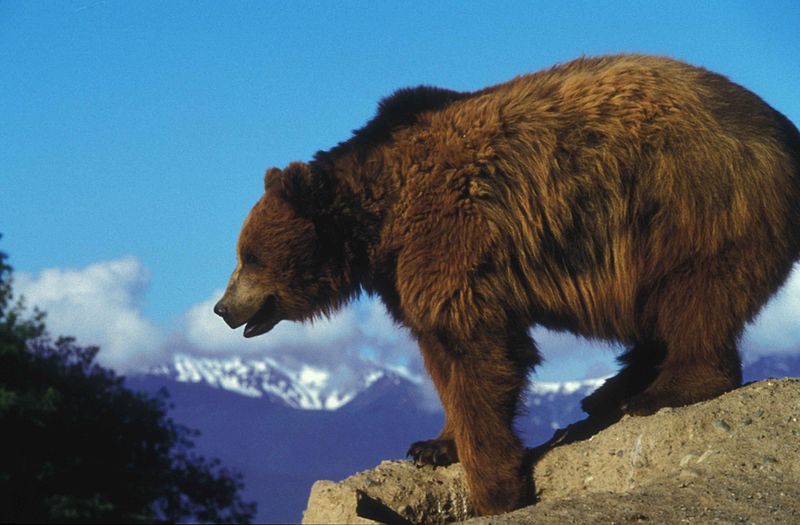Like this article? rabble is reader-supported journalism. Chip in to keep stories like these coming.
The agreement between government, industry, First Nations and environmental groups to protect much of the Great Bear Rainforest should be celebrated. The deal makes almost 85 per cent of the forested land base in this massive region on B.C.’s coast off limits to logging. Forestry in the remaining 15 per cent will follow “lighter-touch” practices, called “ecosystem-based management.” Most importantly, First Nations will have greater decision-making authority over industrial development on their lands.
However, while the agreement helps protect grizzly bear and other wildlife habitat, it doesn’t protect the bears themselves, contrary to B.C. Premier Christy Clark’s claims at a news conference. Hunting grizzly and black bears in the Great Bear remains legal.
The agreement actually contains no reference to grizzly hunting. To slow the hunt, First Nations and others must pony up millions of dollars to buy out existing guide outfitting territories open to foreign big-game hunters. Trophy hunting by B.C. residents — governed under a different process — will proceed regardless of whether First Nations and their allies purchase and retire foreign hunting quotas.
Had the government been serious about ending the barbaric hunt, it could have banned it outright under the province’s Wildlife Act, or simply ended the open season on grizzlies in the Great Bear, as was done by earlier governments to protect the area’s Kermode “spirit bears.” (Only bears with white fur are protected, even though bears with black coats can carry the spirit bear gene.) Despite the spin, the B.C. government has never recognized the Coastal First Nations ban on trophy hunting in the Great Bear Rainforest.
Seeing grizzlies feeding on salmon as the fish make their way up the coastal streams and rivers of B.C. and Alaska is magnificent. These large brown bears with their characteristic hump and silver-tipped fur scoop salmon from the river in an age-old interplay between ocean, river, fish, bear, bird and forest. The salmon bring nutrients from the ocean. The bears eat salmon and drag the carcasses into the forest, providing food for other animals, like eagles, and fertilizer for the massive rainforest trees.
First Nations-owned and operated bear-viewing operations are booming in the Great Bear Rainforest, creating jobs and revenue. The trophy hunt threatens these sustainable businesses.
The grizzly bear trophy hunt is a sport like dogfighting, cockfighting and bullfighting are sports — maybe worse. Bears that people come to see and photograph can be legally shot by trophy hunters, armed with high-powered rifles and scopes. That the B.C. government allows it to continue in the face of opposition from First Nations and a huge majority of British Columbians for the sake of profit is disgusting.
I’m not against hunting — and many who oppose the trophy hunt agree that sustainable hunting can be a good way to put food on the table. But shooting an animal — often on its way to feed and thus an easy target — just to hang its head on the wall or put its skin on the floor is not hunting. It’s killing for pleasure.
Government justifies allowing this practice by arguing the hunt is well-managed and that grizzlies are plentiful, with only a small number killed each year by hunters. Even if that were true — which it’s not — it’s a poor excuse for an inhumane practice.
Studies confirm earlier research by the David Suzuki Foundation showing the hunt is not sustainable. A peer-reviewed report by Simon Fraser University, University of Victoria and Raincoast Conservation Foundation scientists in the journal PLOS ONE analyzed the provincial government’s own data and concluded too many grizzlies are being killed in B.C. They found overkilling of grizzly bears by humans is common and that annual hunting mortality limits set by government are too risky.
Grizzlies reproduce slowly, generally having one or two cubs every three or more years. They also face threats from habitat loss, damage and fragmentation; cascading effects of salmon collapse and climate change; and death from poaching, vehicle and train collisions and the inevitable adverse impacts of careless human behaviour. Grizzlies have already been eliminated or are currently threatened in 18 per cent of the province, including the Lower Mainland and most of the Interior.
It’s time to stop killing bears for trophies.
Written with contributions from David Suzuki Foundation Ontario and Northern Canada Director Faisal Moola.
Learn more at www.davidsuzuki.org.



